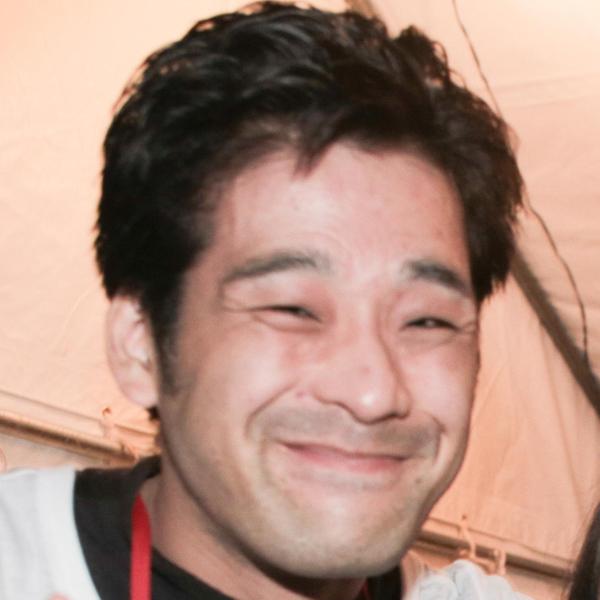Daisuke AKITA
AKITA Daisuke is involved in a variety of civic projects while working as a civil servant. His philosophy is that communities can both solve familiar and major social problems if they are connected and act with empathy. In a time when social issues are complex and intertwined, it is necessary for communities to connect with ‘empathy’, take small actions and create new mechanisms.
Hanako KUNO
KUNO Hanako is the president of Trifle Inc., a foreign language staffing and dispatch service. While traveling to fifty countries, as well as two trips around the world, she witnessed the disparities and decided to start her own business in order to create a society in which everyone is paid proportionate to their abilities. Not only has her out-of-the-ordinary management policy been a great success, but it’s also fostered unexpected rewards in her business. Her hypothesis suggests that those in positions to offer rewards have the power to create a positive feedback loop.
Ichiro KANAYA
KANAYA Ichiro, as a scientist, works around the clock to promote education and the integration of science, technology, engineering, art, and mathematics, STEAM. His desire to preserve and digitize world heritage sites has taken him to Egypt and Nagasaki, and he has logged over 9000 kilometers in the process. Aside from that, in his quest to understand how the brain works, he has come across a wide range of literature and researchers. The conclusions he drew from his research will allow you to open up your future possibilities.
Junko TOYONAGA
TOYONAGA Junko has been dancing since she was a child, and while continuing to perform in Japan and abroad, she is also pursuing research and education in dance. She values live performances that can only be expressed in the present time, as there are things that can only be conveyed in real time. Can “dance,” a physical expression that has no common form, convey various information and emotions?
What has just happened cannot be reenacted again. It is because both the audience and She change with each moment, and even though we may look the same or sound the same, it is something that will change based on what each individual perceives. I hope that as you watch her live at this time and place, you will feel the heat that she radiates.
(Percussion:IKARI Atsuko)
Keiko KUROSHIMA
KUROSHIMA Keiko is a web and graphic designer, soy sauce sommelier and soy sauce sensory inspector. Born in the soy sauce town of Shodoshima Island and grew with the aroma of soy sauce. She fell in love with soy sauce brewers when she was 20 years old and at the same time realized that soy sauce and other things that moved Japan proudly were being severely selection.
In order to transform this ""severe selection"" into an ""interesting future,"" she continues to visit soy sauce breweries all over Japan from her base on Shodoshima to design, photograph, write, give lectures, create recipes, and to increase the number of people who can consciously enjoy their daily meals with soy sauce.
Masato ODA
ODA Masato developed an online service that visually displays multilingual guidelines for forming rules around the world. By making full use of technology, he aims to democratize the rules so that ordinary people can get involved. In an age when plastics are polluting the world’s oceans and finance is focused on the carbon emissions of corporations around the world, what kind of rules should we use to design our society? The rules that have been set by somebody else. Now, we need an environment in which we can all get involved in the rule-making.
SHU
Handpan player SHU is characterised by the fact that anyone can improvise on handpan because it has a fixed scale. For him, improvisation is about "sensing the atmosphere of the place, the flow of people, the atmosphere of the venue and my own feelings in the moment and transforming them into sound". He fantasises about being in this place but not anywhere else, and touches the deepest, most introspective part of himself from inside someone else or from between the airs of the place. The performance is a repetitive, on-the-spot movement that jumps over all kinds of boundaries.
Shuji NISHIMURA
NISHIMURA Shuji is an architect who buys abandoned houses that no one would look at and fixes them through DIY over and over.
The roots of his activities date back to his school days.
Landlords kick him out from his DIY, very cheaply rented residence.
This experience led him to a style of owning and rebuilding abandoned house by himself , and renting it to someone very cheaply or sometimes for free.
His current activities have expanded to build a village.
To get his unique perspective will transform the way you look at abandoned houses.
Is the abandoned house really a problem?
Yoshihiro SHUTO
SHUTO Yoshihiro, Manager of a multigenerational share house with children and elderly residents. The inhabitants around him face an inevitable matter of death. However, despite this, all of them smile until the very end. Wisdom from his way of life contains secrets for changing a problem into a positive rather than solving it.

